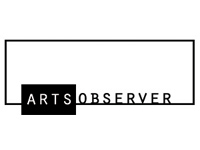
NEW YORK—Thousands of triangle forms wrapped in Korean mulberry paper create textured canvases and spheres with lunar-like surfaces, all with poetic color gradations. Hasted Kraeutler is exhibiting the paper sculptures by Kwang Young Chun. Continuing the theme the Korean artist began pursuing in 1995, the landscapes are full of expression, taking viewers on an aesthetic and cultural journey.
On his website, Chun describes how a childhood memory prompted his work with mulberry paper:
“When I was young, I was a sickly child, and my mother used to take me to the Chinese medicine doctor in the neighborhood. I never liked the place because of the strong odor of infusion, and the threatening sight of the acupuncture needles. While the doctor felt my pulse, my mother held my hand, and I fixed my eyes upon the ceiling, hearing the doctor muttering something to himself.
“I remember that numerous packages of mulberry paper were hanging from the ceiling, each holding a name card of the medicine wrapped inside. The image of my old memories of the drugstore lasted in my head for a while. I always had a desire to communicate my art through a Korean sentiment, and the image of the medicine packages hanging from the ceiling became a new theme in my art since that memorable afternoon.”
Selections from Chun’s “Aggregation” series are on view at Hausted Kraeutler from Sept. 6 to Oct. 20, 2012.
From Chun’s artist statement: “To me, the triangle pieces wrapped in mulberry paper are the basic units of information, the basic cells of life that only exists in art, as well as independently expressive social events or historical facts. By attaching these pieces one by one to a two dimensional surface, I wanted to express how the basic units of information can create harmony and conflict with each other. This became an important milestone in my long artistic journey that desired to express the troubles of the modern man who is driven to a devastated life by materialism, endless competition, conflicts and destruction.”